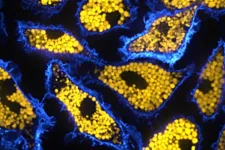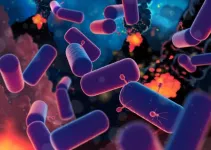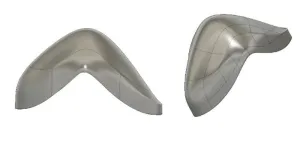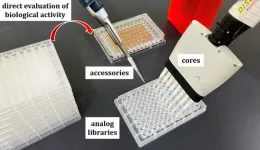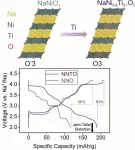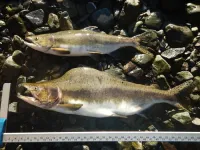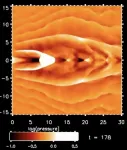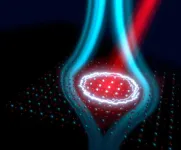Unprecedented warming threatens earth’s lakes and their ecosystems
2024-07-12
(Press-News.org)
Lakes, with their rich biodiversity and important ecological services, face a concerning trend: rapidly increasing temperatures. A recent study published in Nature Geoscience by an international team of limnologists and climate modelers reveals that if current anthropogenic warming continues until the end of this century, lakes worldwide will likely experience pervasive and unprecedented surface and subsurface warming, far outside the range of what they have encountered before.
The study uses lake temperature data simulated by a state-of-the art climate computer model (Community Earth System Model, version 2) covering the period from 1850-2100 CE. It is the first model of its kind, which captures the dynamics and thermodynamics of lake systems in an integrated way with the atmosphere. Rather than running the computer model into the future only once, the scientists used an ensemble of 100 past-to-future simulations, which were run on one of South Korea’s fastest computers (‘Aleph’ at the Institute for Basic Science). Each simulation generates a slightly different realization of natural climate variability while it also responds to the anthropogenic warming effects from increasing greenhouse gas concentrations. With this ensemble modelling approach, the scientists were able disentangle the range of naturally occurring lake temperature variations from those caused by human interference (Figure 1). This allowed the team for the first time to estimate the time when lake temperatures will permanently exceed natural bounds – a situation referred to as no-analogue conditions.
Dr. Lei Huang, the study’s lead author (now at Capital Normal University, Beijing, China) and former postdoctoral researcher at the IBS Center for Climate Physics in Busan, South Korea, emphasizes that on average lakes worldwide will face no-analogue climates by the end of this century. However, the timing of emergence varies globally. Tropical lakes, harboring rich biodiversity, will be the first to experience unprecedented conditions when global warming reaches ~2.4°C (above pre-industrial conditions).
While surface warming affects species in shallow lake layers, some organisms can migrate vertically to find more suitable thermal habitats. Therefore, it is crucial to also consider how warming penetrates the subsurface layers. “Our study reveals synchronous emergence of no-analogue conditions in tropical lake subsurface layers, driven by rapid downward transmission of warming signals during frequent lake mixing events. In contrast, high-latitude lakes partly shield subsurface layers from surface warming through stratification, delaying or sometimes even preventing no-analogue climates at depths.” says Dr. Iestyn Woolway, NERC Independent Research Fellow at Bangor University, UK, corresponding author of the study.
The consequences of no-analogue lake climates are profound. “They can lead to severe future disruptions in ecosystems” comments Prof. Axel Timmermann, co-author of the study and Director of the IBS Center for Climate Physics. Compared to terrestrial and marine biota, lake organisms are often limited in their capability to migrate to climatically more optimal habitats. Understanding the timing of no-analogue emergence is therefore vital for adaptation, planning, and climate mitigation in lake ecosystems.
END
[Attachments] See images for this press release:
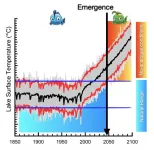

ELSE PRESS RELEASES FROM THIS DATE:
2024-07-12
Researchers at The Hospital for Sick Children (SickKids) have found that inflammation in an immune cell may be responsible in part for some severe symptoms in a group of rare genetic conditions called lysosomal storage diseases (LSDs).
LSDs affect about one in 7,700 live births worldwide. Children with the condition typically present at a young age with progressive neurodegeneration. Many children with LSDs die prematurely, and current treatments focus on symptom management.
Until now, the role of macrophages in the immune system and LSDs was ...
2024-07-12
An international team of researchers led by the University of Bristol has shed light on Earth’s earliest ecosystem, showing that within a few hundred million years of planetary formation, life on Earth was already flourishing.
Everything alive today derives from a single common ancestor known affectionately as LUCA (Last Universal Common Ancestor).
LUCA is the hypothesized common ancestor from which all modern cellular life, from single celled organisms like bacteria to the gigantic redwood trees (as well as us humans) descend. LUCA represents the root ...
2024-07-12
Astronauts on spacewalks famously have to relieve themselves inside their spacesuits. Not only is this uncomfortable for the wearer and unhygienic, it is also wasteful, as – unlike wastewater on board the International Space Station (ISS) – the water in urine from spacewalks is not recycled.
A solution for these challenges would be full-body ‘stillsuits’ like those in the blockbuster Dune franchise, which absorbed and purified water lost through sweating and urination, and recycled it into drinkable water. Now, this sci-fi ...
2024-07-12
A method to screen a wide variety of drug candidates without laborious purification steps could advance the fight against drug-resistant bacteria.
Efforts to combat the increasing threat of drug-resistant bacteria are being assisted by a new approach for streamlining the search for antimicrobial drug candidates, pioneered by researchers at Hokkaido University, led by Assistant Professor Kazuki Yamamoto and Professor Satoshi Ichikawa of the Faculty of Pharmaceutical Sciences. Their methods, developed together with researchers elsewhere in Japan and in the USA, are discussed ...
2024-07-12
Researchers at Karlsruhe Institute of Technology (KIT) have made significant advances in sodium-ion battery (SIB) technology by improving cycling performance of the NaNiO2 cathode. They successfully synthesized, for the first time, the cathode active material NaNi0.9Ti0.1O2, which delivers a specific capacity of 190 mAh/g, thus positioning it as a potential candidate for application in high-energy-density SIBs. This innovative approach not only improves battery stability but also propels us toward advanced energy-storage solutions beyond.
With its high theoretical ...
2024-07-12
The ability of salmon hatcheries to increase wild salmon abundance may come at the cost of reduced diversity among wild salmon, according to a new University of Alaska Fairbanks–led study.
The number of juvenile salmon released into the North Pacific Ocean by hatcheries increased rapidly in the second half of the last century and remains at over 5 billion each year. Salmon hatcheries have helped push annual pink salmon harvests in Prince William Sound from about 4 million fish prior to hatchery programs to roughly 50 million in recent years.
Using data collected from pink salmon streams ...
2024-07-12
Researchers created a computer model that uses AI to examine heart images from magnetic resonance imaging (MRI)
Results were comparable to those worked out by doctors manually, but instead of taking 45 minutes or more, the AI model takes just a few seconds
The AI model could lead to more efficient diagnoses, better treatment decisions and improved outcomes for patients
Researchers have developed a groundbreaking method for analysing heart MRI scans with the help of artificial ...
2024-07-12
Galaxies avoid an early death because they have a "heart and lungs" which effectively regulate their "breathing" and prevent them growing out of control, a new study suggests.
If they didn't, the Universe would have aged much faster than it has and all we would see today is huge "zombie" galaxies teeming with dead and dying stars.
That’s according to a new study published in the Monthly Notices of the Royal Astronomical Society, which investigates one of the great mysteries of the Universe – why galaxies are not ...
2024-07-12
Superconductivity is a fascinating phenomenon, which allows a material to sustain an electrical current without any loss. This collective quantum behavior of matter only appears in certain conductors at temperatures far below ambient.
A number of modern studies have investigated this behavior in so-called non-equilibrium states, that is in situations in which the material is pushed away from thermal equilibrium. In these conditions, it appears that at least some of the features of superconductivity can be recreated even at ambient temperatures. Such non-equilibrium high temperature superconductivity, shown to exist under irradiation ...
2024-07-12
New research to be presented at this year’s Annual Meeting of the European Association for the Study of Diabetes (EASD) (Madrid, 9-13 September) shows that people recently diagnosed with diabetes who experience short or long sleep duration are more likely to experience microvascular disease (damage to the small blood vessels), which could ultimately lead to more serious complications. The study is by Mette Johansen and Thomas Olesen, Steno Diabetes Center Odense, Odense University Hospital, Odense, Denmark, and colleagues.
Microvascular complications, such as retinopathy and nephropathy, are major contributors ...
LAST 30 PRESS RELEASES:
[Press-News.org] Unprecedented warming threatens earth’s lakes and their ecosystems


